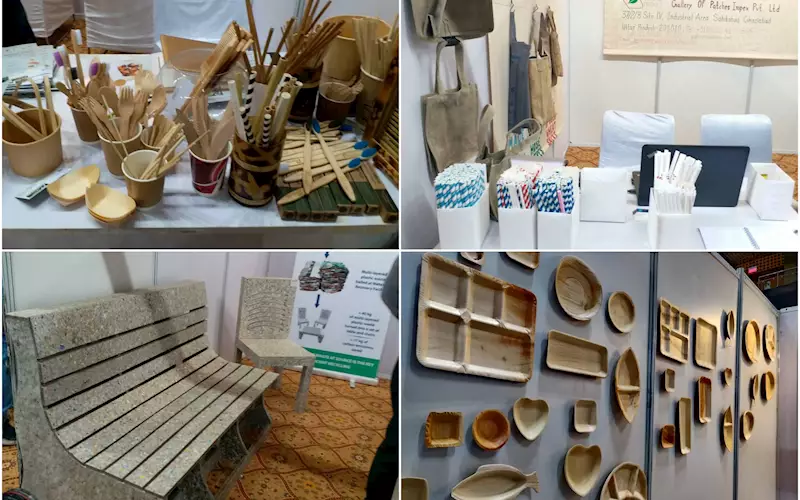India responds to single-use plastic ban
India began its plastic ban journey on 1 July. The ban on the manufacture, import, stocking, distribution, sale, and use of identified single-use plastic items, which have low utility and high littering potential, was visible all across the country
04 Jul 2022 | By Janhavi Sisodia
During the past 72 hours, PrintWeek noticed homemakers and school children carrying reusable shopping bags. Also, traditional kirana stores were offering cloth bags to those customers who did not have a shopping bag. These were the highlights of the first three days of the plastic ban as India began its tryst with banning single-use plastic.
Celebrities like Dia Mirza (who is also the goodwill ambassador at UNEP, UN Secretary Generals Advocate for SDGs, Wildlife Trust Of India) tweeted, "This single-use plastic (SUP) is ours now to implement. Let’s do our bit to ensure we refuse all SUPs."
Dr Ravindra Khaiwal, the public health, environmental health, air pollution - and working for better earth for all at PGIMER, Chandigarh as a professor said "Banning single-use plastics impacts our health". Dr Khaiwal explained how plastics degrade into microplastics after entering various ecosystems. These microplastics act as a platform for the growth of pathogenic micro-organisms. And we could do without pathogens.
He added, "Remember, plastic is not an issue but how we use and dispose of plastic is crucial." Dr Khaiwal felt, "India can play a leadership role in demonstrating the world to protect the environment and promote sustainability."
Meanwhile the Central Pollution Control Board (CPCB) launched an app where you can scan and lodge a complaint about the single use plastic. For violators there is a prescribed punishment which is mandated by the Environmental Ministry of India. The CPCB social media site also requested citizens to "stop the use of plastic sheets to cover invitation cards. Also, as a responsible citizen, let’s not accept the sweet boxes wrapped with plastic sheets". Also CPCB said "As per SUP ban, plastic earbuds are banned from 1 July 2022. Hence, let's start using wooden stick earbuds or any such other alternatives."
Saurabh Agarwal, senior director and general manager, LPM - South Asia, Avery Dennison, said, “The government’s decision to implement a ban on single-use plastic is a welcome move since it supports the green initiative of curbing pollution and health hazards and lead to environmental sustainability. However, in order to make this decision a success, we would need to look at the replacement of plastic products with environmentally friendly substitutes and more viable alternatives. Also, we would need to significantly invest in research and development and look for more innovative technologies to develop alternative products in future.”
An exhibition was arranged by the Department of Environment in Delhi NCT wherein they displayed alternatives to SUP such as corn starch, areca nut leaf, bagasse pulp, bamboo straws etc. Many NGOs and self-help groups also Self Help Groups participated in the "Say No to Single Use Plastic" exhibition and showcased paper product items. Also, the Delhi government launched an awareness drive for the ban of single-use plastic items.
In addition, many awareness programs about plastics and alternatives were organised at various places in NCR by NGOs, student bodies etc. One program - Plastic Heist - highlighted how one can get a cloth bag when you provide 10 plastic bags for recycling. These awareness drives have been running for months now and according to the Plastic Waste Management rule, all states and Union territories have conducted the commencement of the single-use plastic ban campaign from 1 July 2022.
There are various alternatives which can be used at the place of single use plastic such as wooden and corn starch cutlery, cloth bags, biodegradable plastic packaging etc. The use of banned plastic bags will now perhaps reduce to some extent but not immediately.
PrintWeek's view: SUP can damage reproductive organs, lungs, and the neurological system. Approximately 150 million tonnes of plastic garbage are floating in our waters, harming species and altering the marine ecosystem. Therefore, by prohibiting these plastic items, the Government can reduce plastic waste production.
What is your view? Please share you thoughts with Janhavi Sisodia at janhavi.sisodia@haymarketsac.com











 See All
See All